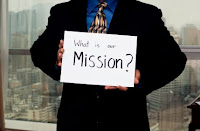Of all the things I’ve done for a living, grant writing is the most challenging. Oh, I’ve flipped hamburgers at McDonalds through the great Big Mac rush of ’74, I’ve put out forest fires during the summer of the great Marble Cone fire in ’77. Why, I’ve even planted flower bulbs for the frenetically manic Ms. Taylor (all names have been changed to protect the innocent).
But grant writing, my friends, demands concentration beyond correcting alternating tulip bulb colors to accent the curtains in a crazy woman’s parlor window (she was inspired by Monet no less). Grant writing is an intense and detail-oriented craft that combines fact with planning to create a sort of future-based fiction.
So, how do you learn to be a good grant writer? If becoming a grant writer is your goal, then I suggest these avenues to that end.
Avenue One – Take a class from an expert grant writer like Veronica Robbins . An experienced grant writer can give you a head start by sharing tips an secrets of the craft that will save you learning them on your own.
Avenue Two – As I’ve recommended before, I suggest you read some grants. You can either volunteer as a reader in a grant competition, or you can get some sample grants to read in your spare time.
Avenue Three – Start your own blog and begin to write on it as frequently as you can. Writing is a skill and a skill takes practice to perfect. And don’t be surprised if your writing is never perfect, but practice is the only road that will take you closer.
I wish you well in your travels and on the road to becoming a grant writer. Grant writing is a tough and rewarding job in which you’ll meet lots of interesting people. You get to help energetic people find money for brilliant ideas!
By: Derek Link, grant writer and non-profit consultant
———————————
Would you like access to the largest collection of grant writing and grant seeking resources on the web? Become a member at GrantGoddess.com!




